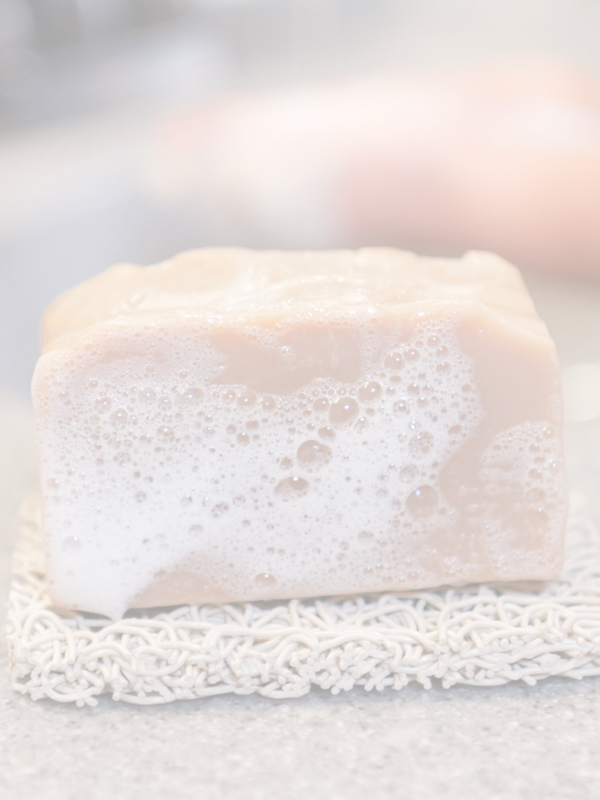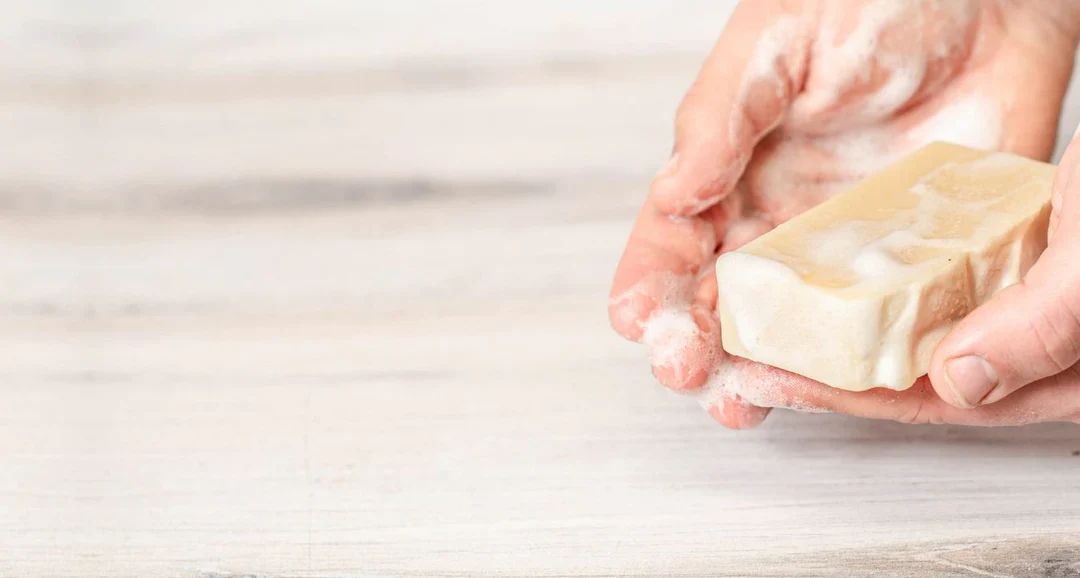Psoriasis Soap
Goat milk has been used for centuries to soothe and heal skin conditions, and psoriasis is no exception. The natural, chemical-free properties of goat milk offer a gentle yet effective way to manage psoriasis symptoms, promoting general skin comfort and health.
Goat milk soap is often recommended for people with psoriasis due to its gentle and nourishing properties that can help alleviate the symptoms of this chronic skin condition.
Here are the benefits of goat milk soap for psoriasis:
- Moisturizing: Goat milk is rich in fatty acids and natural emollients that deeply hydrate the skin. Since psoriasis often causes dry, scaly patches, the moisturizing properties of goat milk soap can help soften and smooth the affected areas.
- Soothing Inflammation: Goat milk contains anti-inflammatory compounds such as fatty acids and antioxidants. These can help reduce the inflammation and redness associated with psoriasis, providing relief from discomfort and irritation.
- Gentle Cleansing: Goat milk soap is typically free from harsh chemicals, synthetic fragrances, and preservatives, which can irritate sensitive skin. Its gentle nature makes it suitable for cleansing without exacerbating psoriasis symptoms.
- Rich in Vitamins and Minerals: Goat milk is a good source of vitamins A, D, and E, which are essential for skin health. Vitamin A, in particular, supports skin cell turnover and repair, which is beneficial for healing psoriasis lesions. Vitamin E acts as an antioxidant, protecting the skin from environmental damage.
- Exfoliation: The lactic acid in goat milk provides mild exfoliation, helping to remove dead skin cells and reduce the appearance of psoriasis scales. This gentle exfoliation can improve skin texture without causing irritation.
- Balanced pH: The pH level of goat milk is close to that of human skin, helping to maintain the skin’s natural barrier and prevent further irritation. A balanced pH is crucial for protecting the skin from external irritants that can worsen psoriasis.
- Natural Humectants: Goat milk soap naturally contains glycerin, a humectant that draws moisture into the skin. Keeping the skin well-hydrated is essential for managing psoriasis, as it can help reduce the severity of flare-ups.
These properties make goat milk soap the perfect choice for people with psoriasis, helping to soothe, moisturize, and protect the skin while minimizing irritation and inflammation.
Incorporate goat milk products and soap for psoriasis into your care routine and discover its benefits. Your skin will thank you for it.
-

Purity Goat Milk Soap Unscented - product-dehydrated-milk
Goat Milk Soap UnscentedRegular price $6.79Regular priceUnit price / per -

Tea Tree Goat Milk Soap -
Goat Milk SoapRegular price $6.79Regular priceUnit price / per -

Unscented Large Solid Goat Milk Lotion - product-dehydrated-milk
Large Solid Goat Milk LotionRegular price $17.19Regular priceUnit price / per -

Activated Bamboo Charcoal Goat Milk Soap -
Goat Milk SoapRegular price $7.99Regular priceUnit price / per -

Laundry Standard Goat Milk Laundry Soap - product-fresh-goat-milk
Goat Milk Laundry SoapRegular price $12.39Regular priceUnit price / per -

Tea Tree Large Solid Goat Milk Lotion - product-dehydrated-milk
Large Solid Goat Milk LotionRegular price $17.19Regular priceUnit price / per -

Purity Goat Milk Bath - product-fresh-goat-milk
Goat Milk BathRegular price $14.99Regular priceUnit price / per
Americans Agree These Are The Best Farm-Fresh Products for Soft Skin
250,000+ happy customers can't be wrong!
-
Oatmeal Milk & Honey Goat Milk Soap
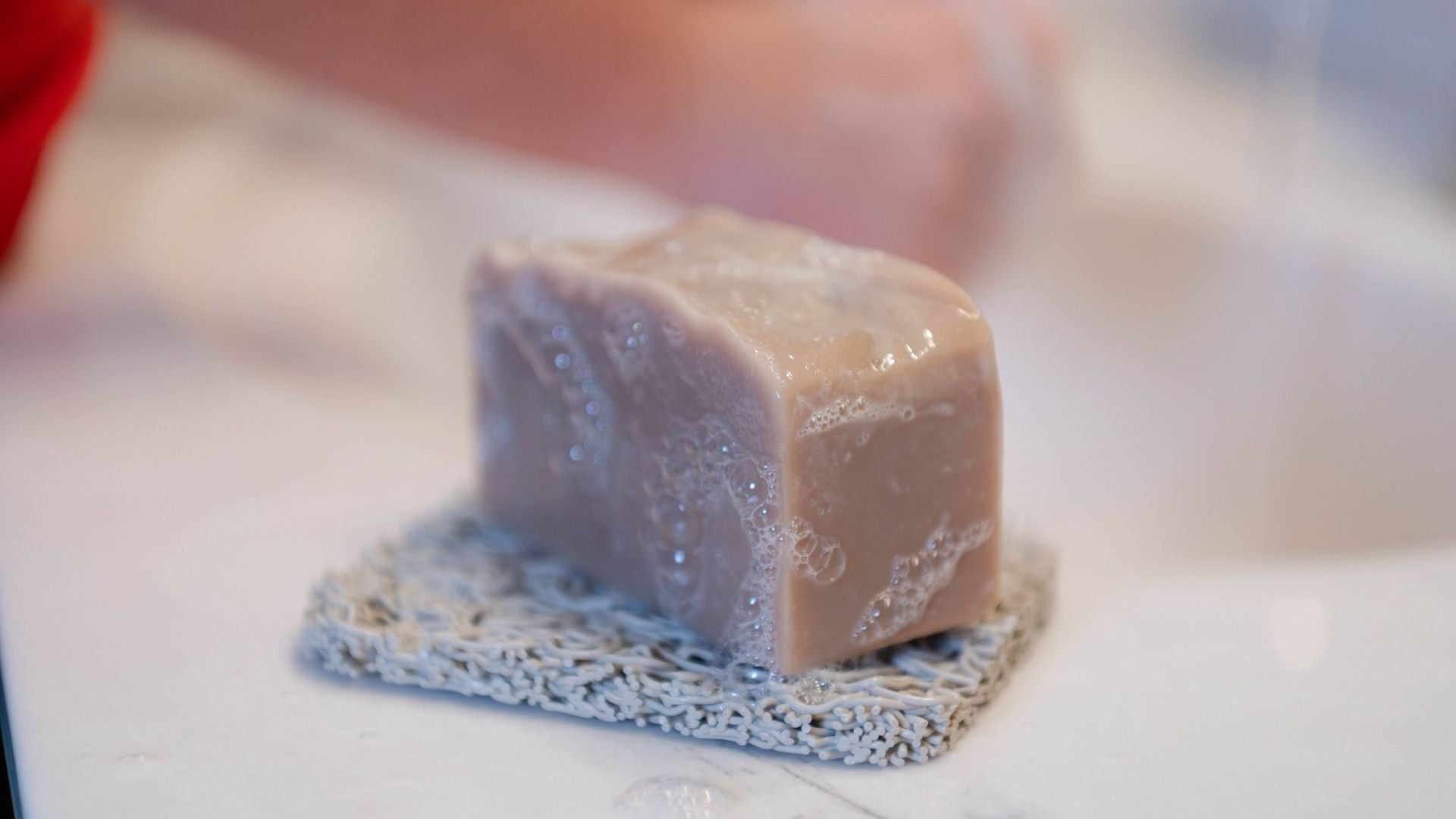
Life-Changing for My Little Ones' Skin
"I am absolutely in love with these products! I have a four month old with severe eczema and a four year old with psoriasis and after using the oatmeal honey soap it has made a huge difference in both of their skin! I've passed the site on to a lot of my friends that are having babies this is by far better than any baby products I have used! Keep up the good work."
Heather G. ✅ Verified Buyer
Shop Now -
Luffa Purity Goat Milk Soap
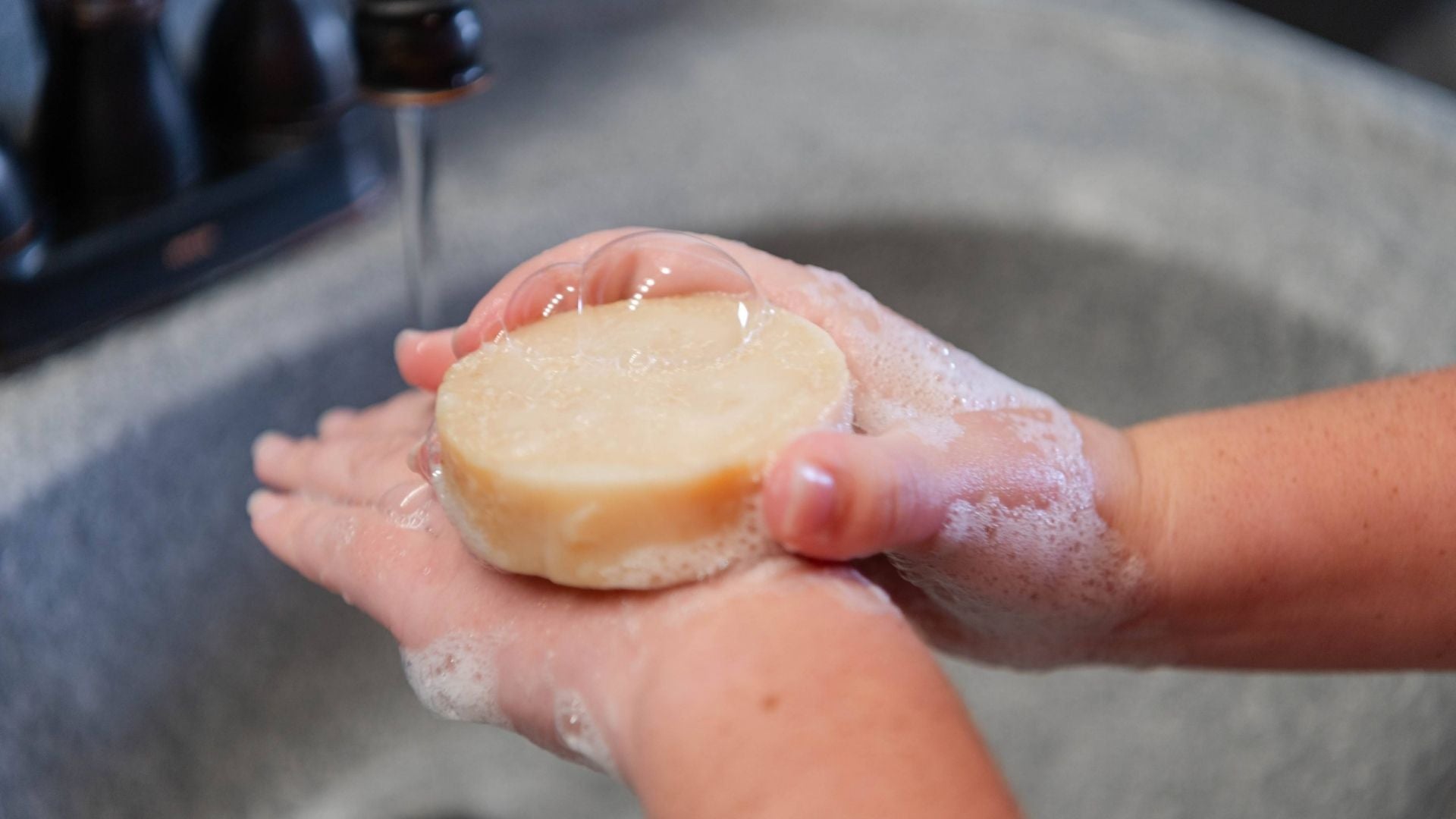
Miracle for Psoriasis
"My husband and I have been using your soap for about 3 weeks now. He has psoriasis and it has worked miracles on his hands where it is the worst. They used to bust open all the time.. However since we started using your purity scrub soap his psoriasis doesn't bust his hand open nearly as much anymore. And as for me I am a huge fan of the Luv Spell it make me smell irresistible to him before bed time.. very pleasurable to fall asleep to this smell he says!"
Miranda D. ✅ Verified Buyer
Shop Now -
Purity Goat Milk Soap Unscented
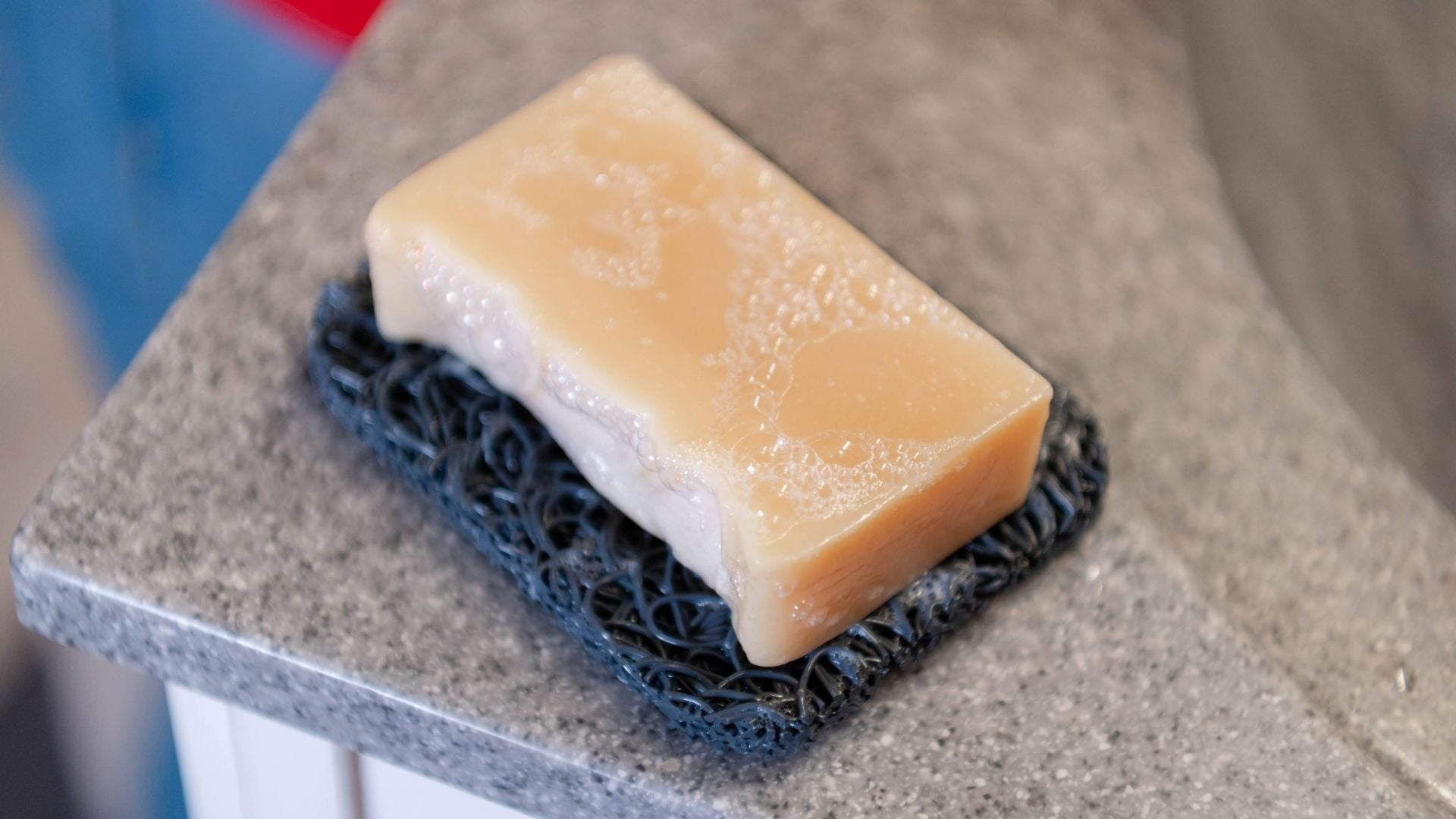
A Family-Wide Skincare Miracle
"I came across the Purity soap a month ago, bought for my mom and a daughter. My mom has dry, itchy diabetic skin and my daughter pretty bad eczema. My mom has no more itchy skin, scalp or dryness, my daughters skin is a lot better she is wearing shorts again! My brother is also using it, his psoriasis is improved, my sisters are using it. We're in love with the results of this product and how good our skins feel. Thank you so very much for making a product that actually works."
Leticia V. ✅ Verified Buyer
Shop Now -
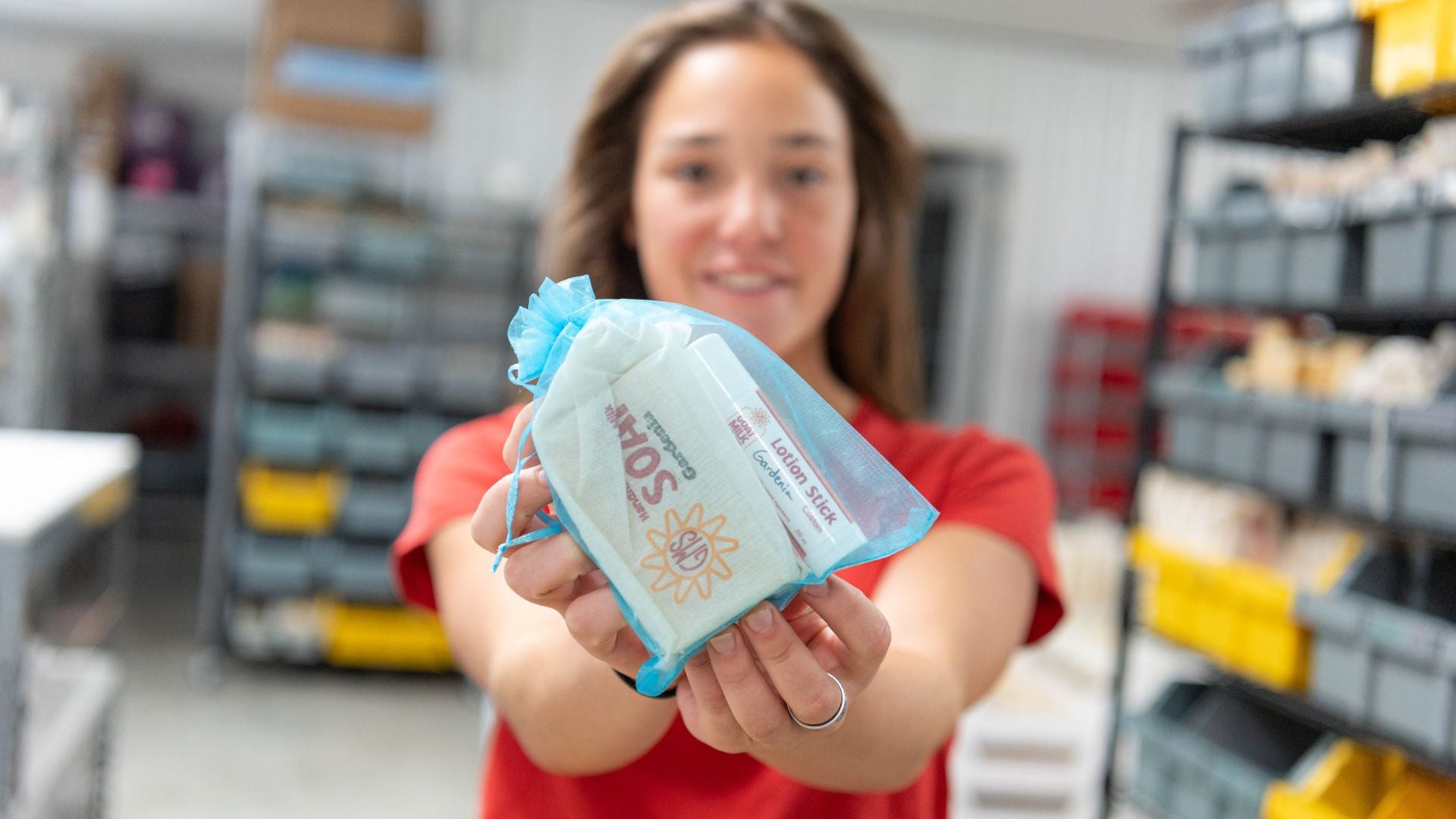
Problem Skin Pack: A Game-Changer for My Sister
"Absolutely love this Problem Skin Pack! I bought this for my sister who has Down Syndrome. She has very sensitive and boil/acne prone skin, as well as psoriasis. An infectious disease doctor was visiting a patient in my office and when I was able to chat with him for a few minutes and he recommended goat milk soap. This pack is perfect because it allows you to try different soaps for long enough to see their results. GMS, you now have a lifelong customer!"
Natasha K. ✅ Verified Buyer
Shop Now -
Purity Goat Milk Soap Unscented
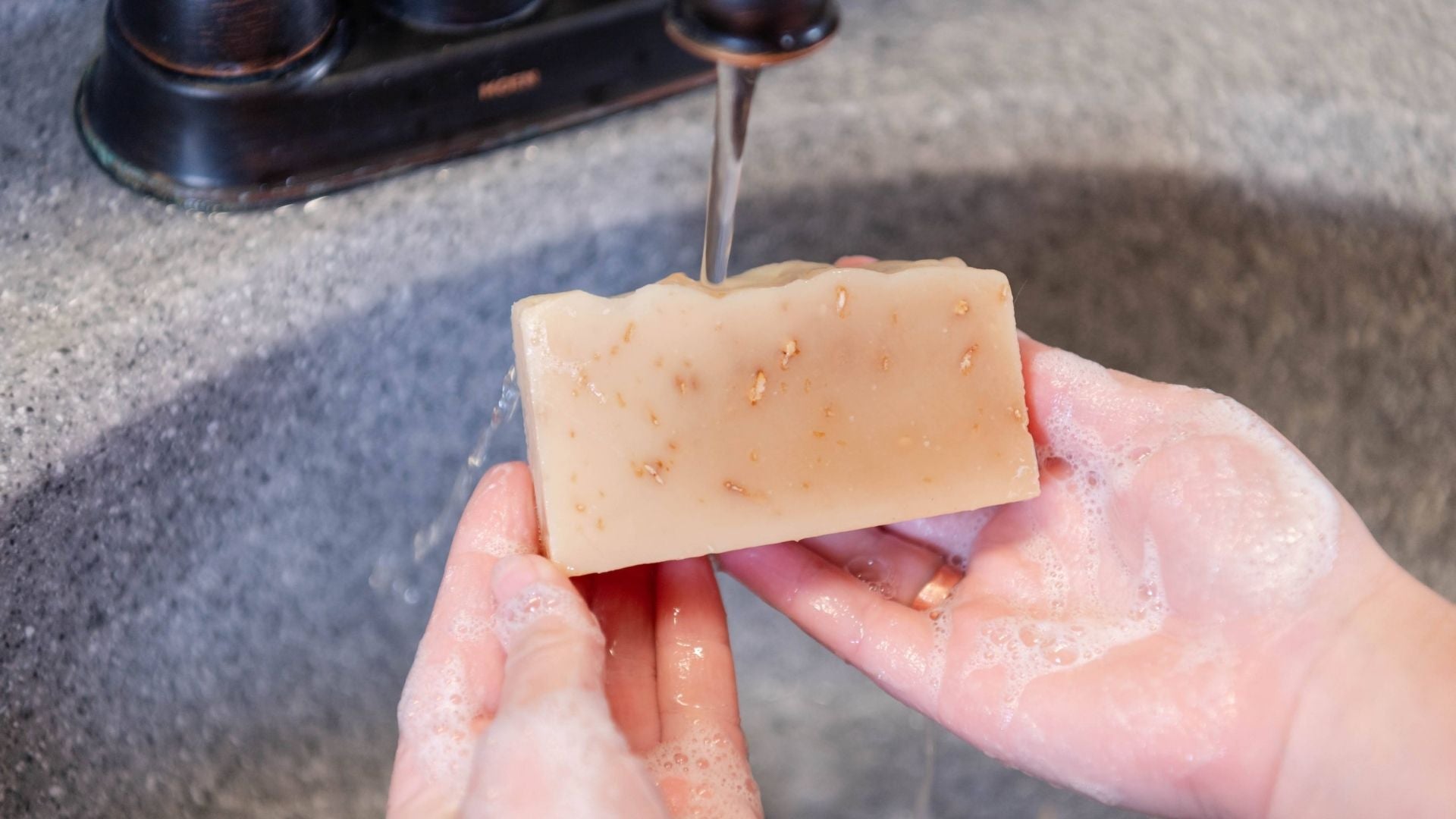
Finally Cleared Up My Stubborn Psoriasis
"I have been dealing with mild psoriasis for several years and I've had a particular spot on my hand that just hasn't gone away. After using the Purity soap for the past week, it has significantly cleared up! I couldn't believe it!"
Heather D. ✅ Verified Buyer
Shop Now -
Tea Tree Large Solid Goat Milk Lotion
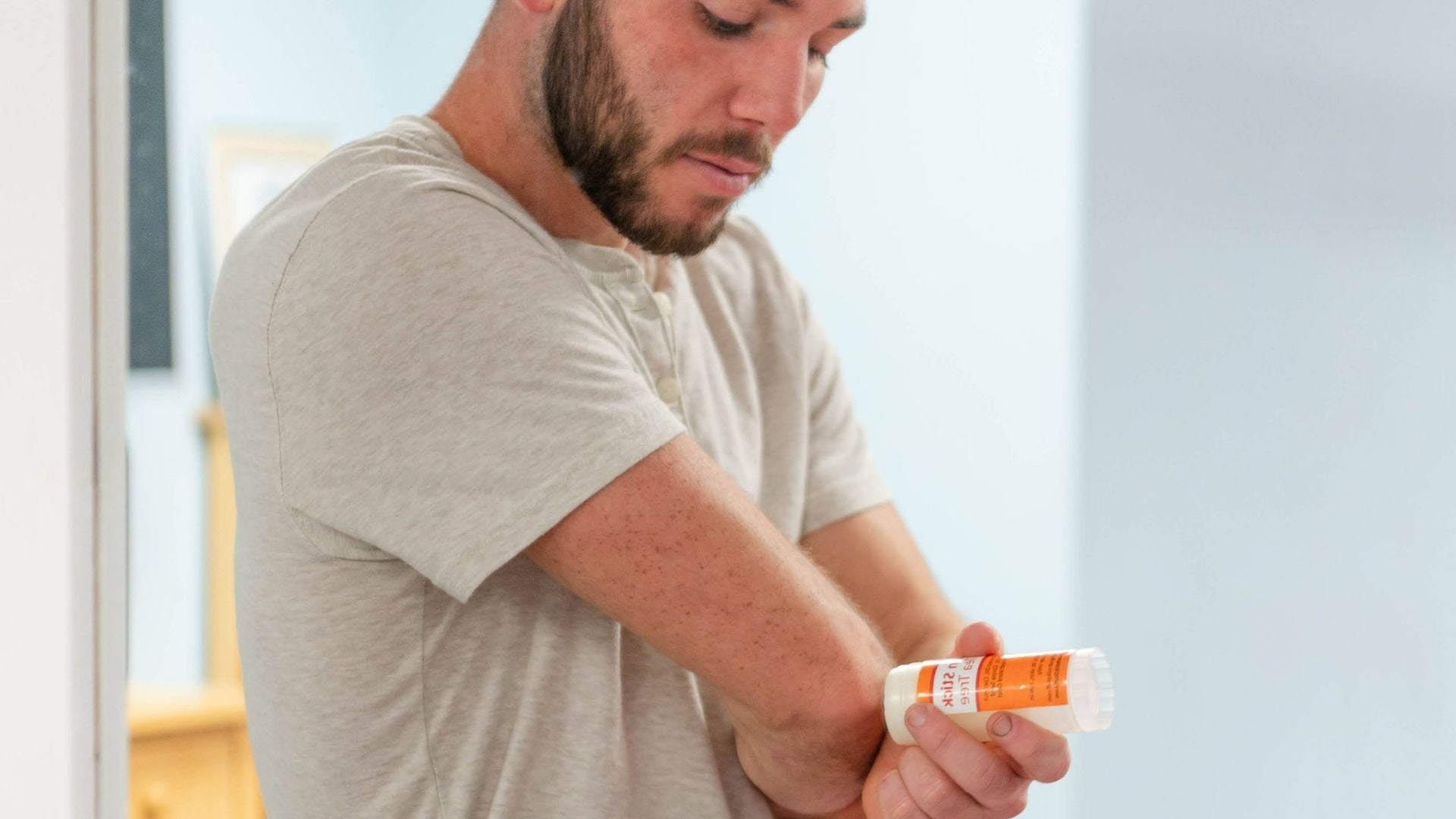
Soothing Relief for My Psoriasis
"The tea tree lotion helps my psoriasis a lot. It doesn't go away but it soothes my psoriasis and helps relieve the itch and make it not near as bad....Just bought my second one before I run out of the first one.....Very satisfied with this and there soap....They ship fast to which I like!"
Debbie P. ✅ Verified Buyer
Shop Now -
Castile Olive Oil Goat Milk Soap
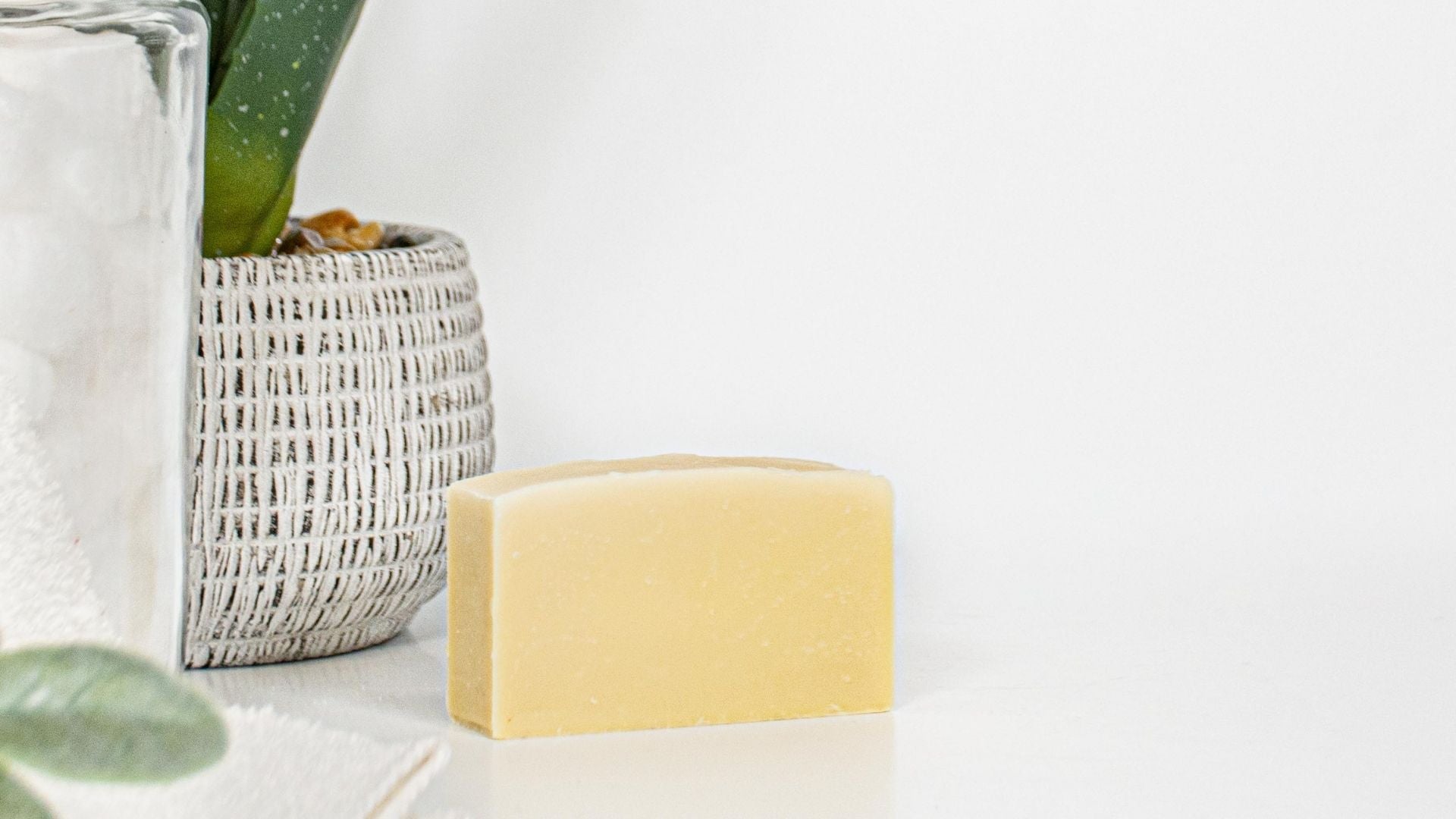
Amazing Results with Purity & Castile Soaps
"My husband had severe psoriasis on his hands, arms, legs, and scalp. He used the organic castile and the purity soaps..... And now has no barely a trace of the dry flaky skin, no itching. We are amazed at how well this product works. Thanks so much!!!"
Gretchen F. ✅ Verified Buyer
Shop Now -
Purity Goat Milk Soap Unscented
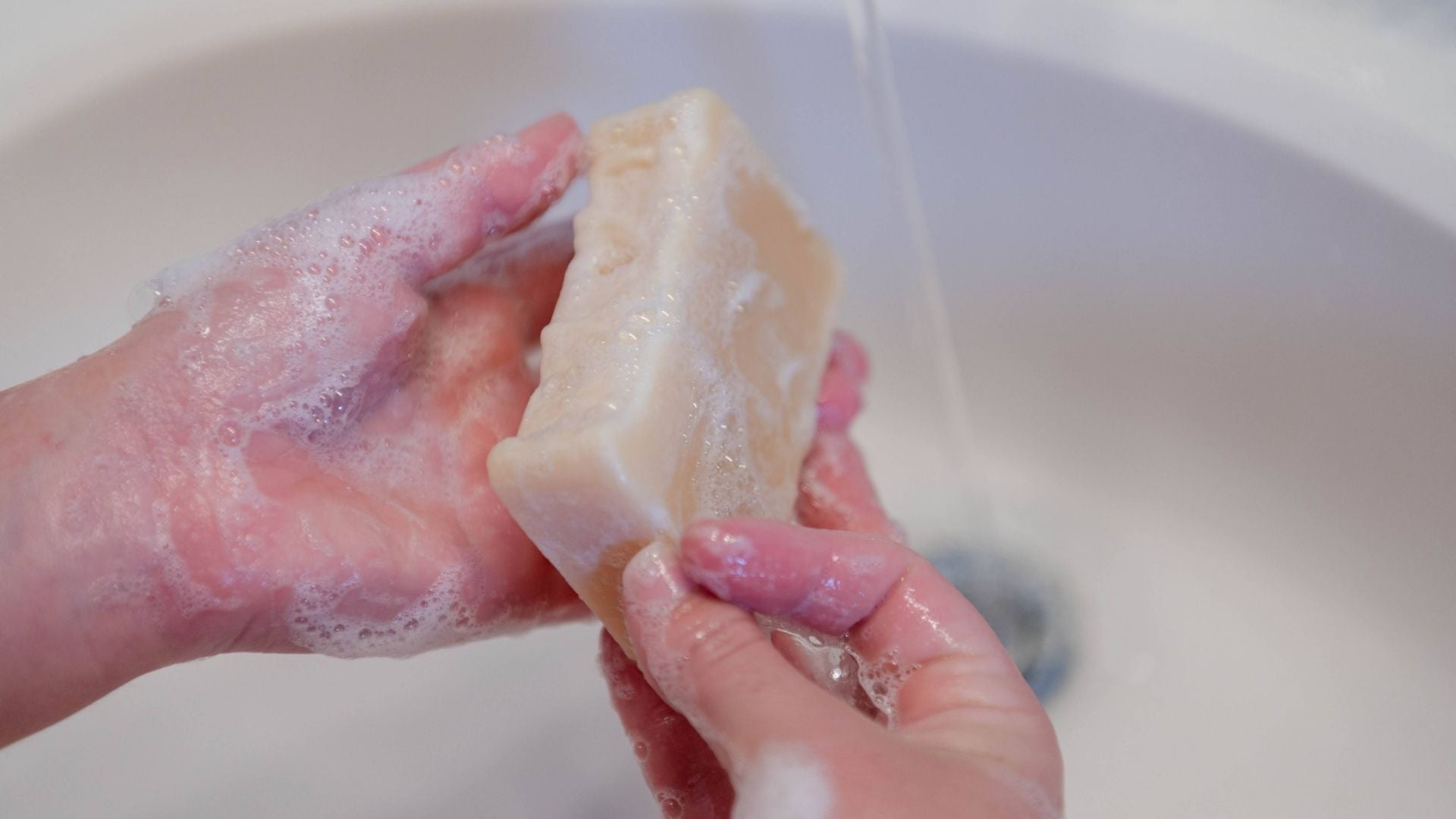
A Gentle Start to Softer, Healthier Skin
"First time user of the Purity soap. I have psoriasis and hoping that the soap would help keep my skin a little softer, so far it appears that it is working some of my smaller patches are fading. I know this is a long term treatment so I’ll have to wait awhile and see what the final outcome will be."
Harry M. ✅ Verified Buyer
Shop Now -
Shampoo OMH Goat Milk Soap
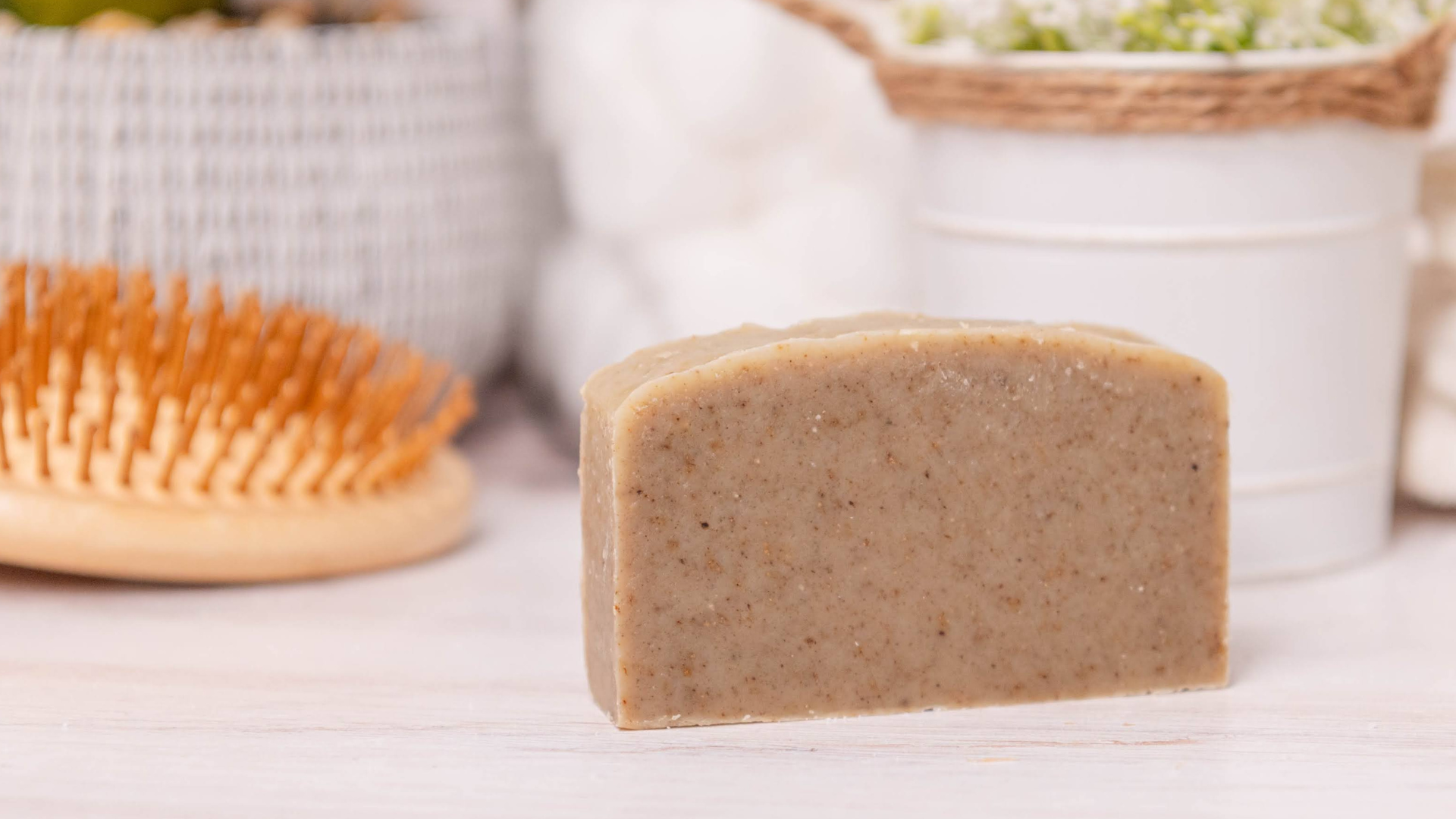
Soothing My Scalp After 50 Years
"I like the Oatmeal Milk and Honey shampoo. It does make my scalp feel better. I’ve had psoriasis on my scalp for 50 yrs. It is helping calm the itching so far. The shampoo keeps my scalp moisturized and has no harsh chemicals which can make my psoriasis worse."
Linda T. ✅ Verified Buyer
Shop Now -
Tea Tree Goat Milk Soap
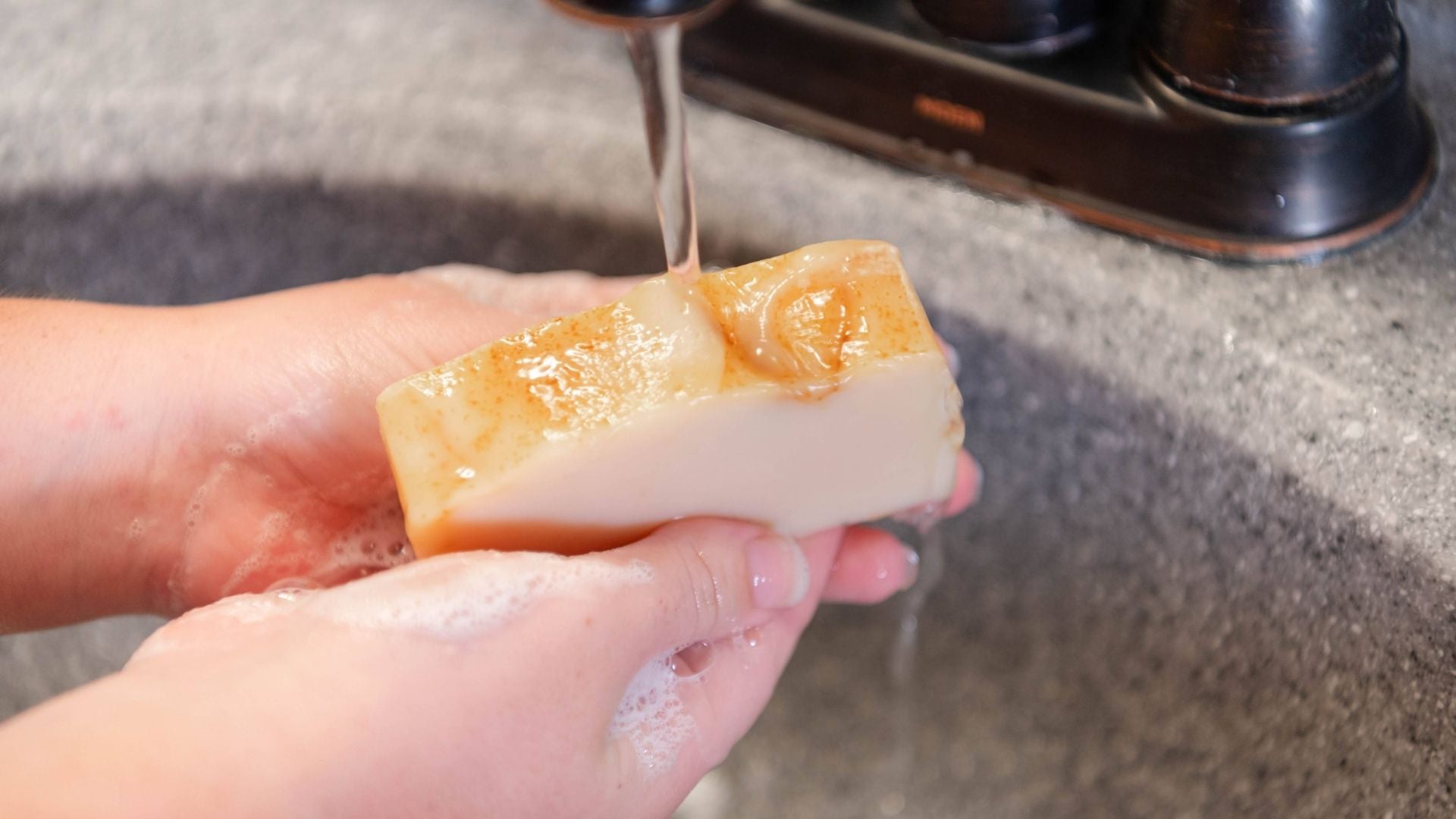
The Best Relief for My Psoriasis
"I suffer from pretty aggressive plaque psoriasis. The tea tree oil soap and lotion both provide for me long-term a huge relief (up to a few hours) from the itching and irritation. They also help clear up (or, excuse me, slough off) a lot of the scaling. It doesn't clear up the psoriasis - the red still remains and the scaling will come back - but I didn't expect it to. But it works much better than any off-the-shelf lotion that I have tried. And I've tried a lot."
Kurt S. ✅ Verified Buyer
Shop Now -
Purity Oats Limited Goat Milk Soap
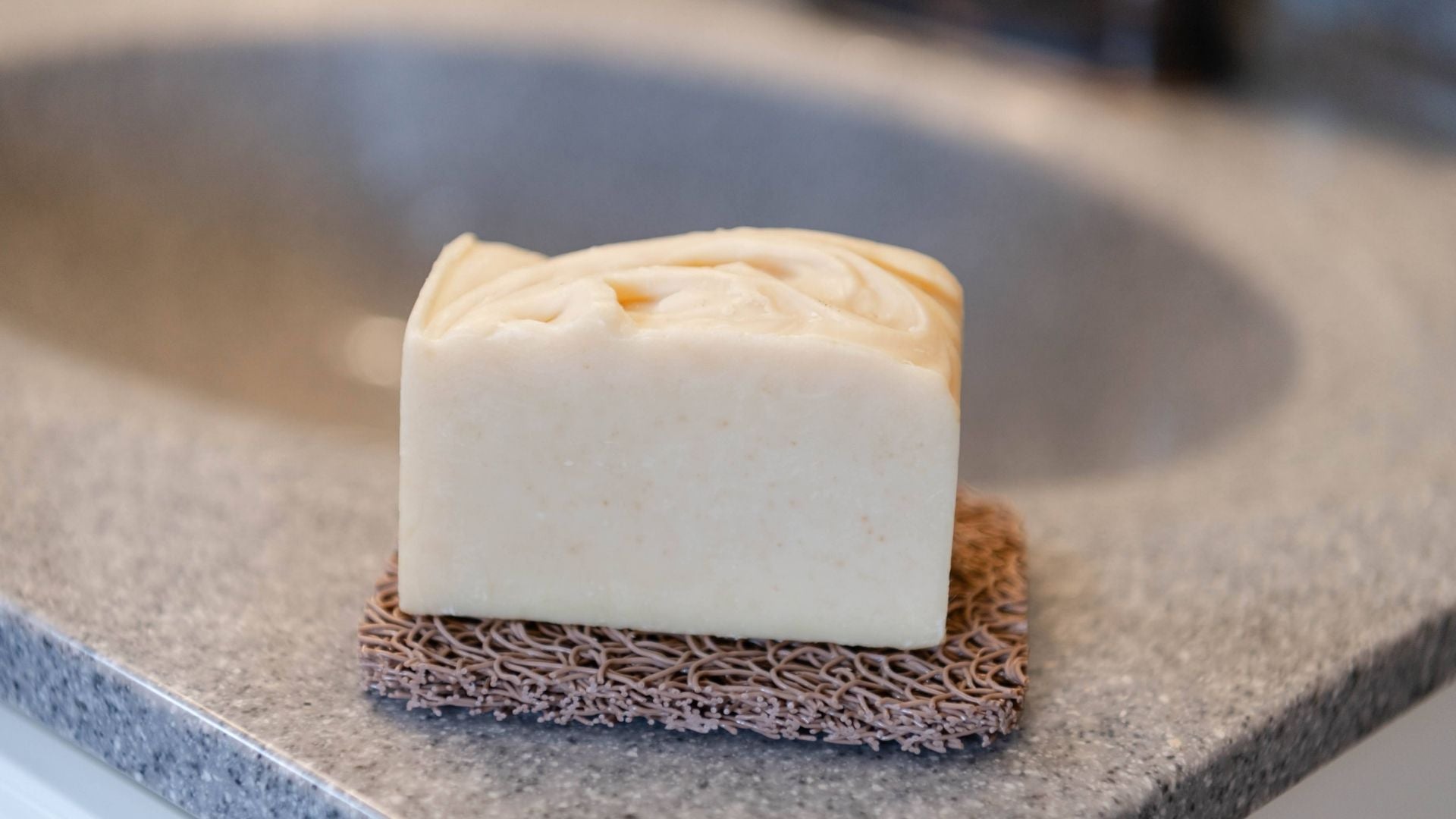
Gentle, Soothing Relief for My Skin
"The Purity Oats soap I tried this time had a nice texture and was silky smooth on my skin. Sometimes I have open sores and cuts from Psoriasis so it can be very painful to wash. The soap was soft and gentle and didn't sting like other products. I had tried different scents before and I liked it so decided to take advantage of the sale. I am very pleased with their products."
April G. ✅ Verified Buyer
Shop Now -
Tea Tree Goat Milk Soap
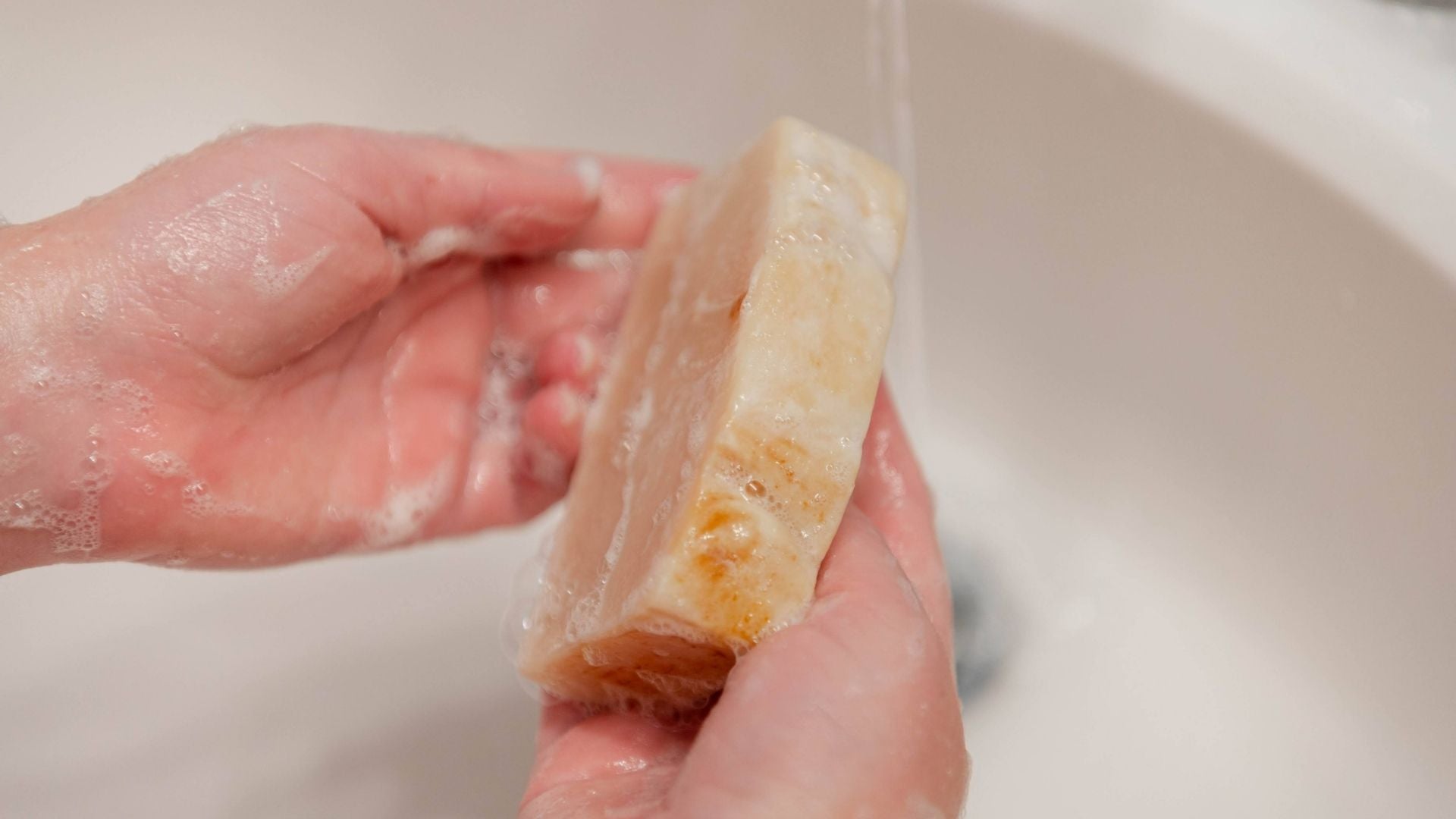
The Relief I’ve Been Searching For
"Absolutely love this! I just ordered a bar at first of the tea tree soap, but it has definitely helped my psoriasis in just a few days. I have spent thousands of dollars trying to get relief, but this has helped much more than anything else. Thank you so much for making this product! I am traveling to Europe this summer and 5/be able to wear shorts for the first time in years."
Ginger C. ✅ Verified Buyer
Shop Now -
Tea Tree Large Solid Goat Milk Lotion
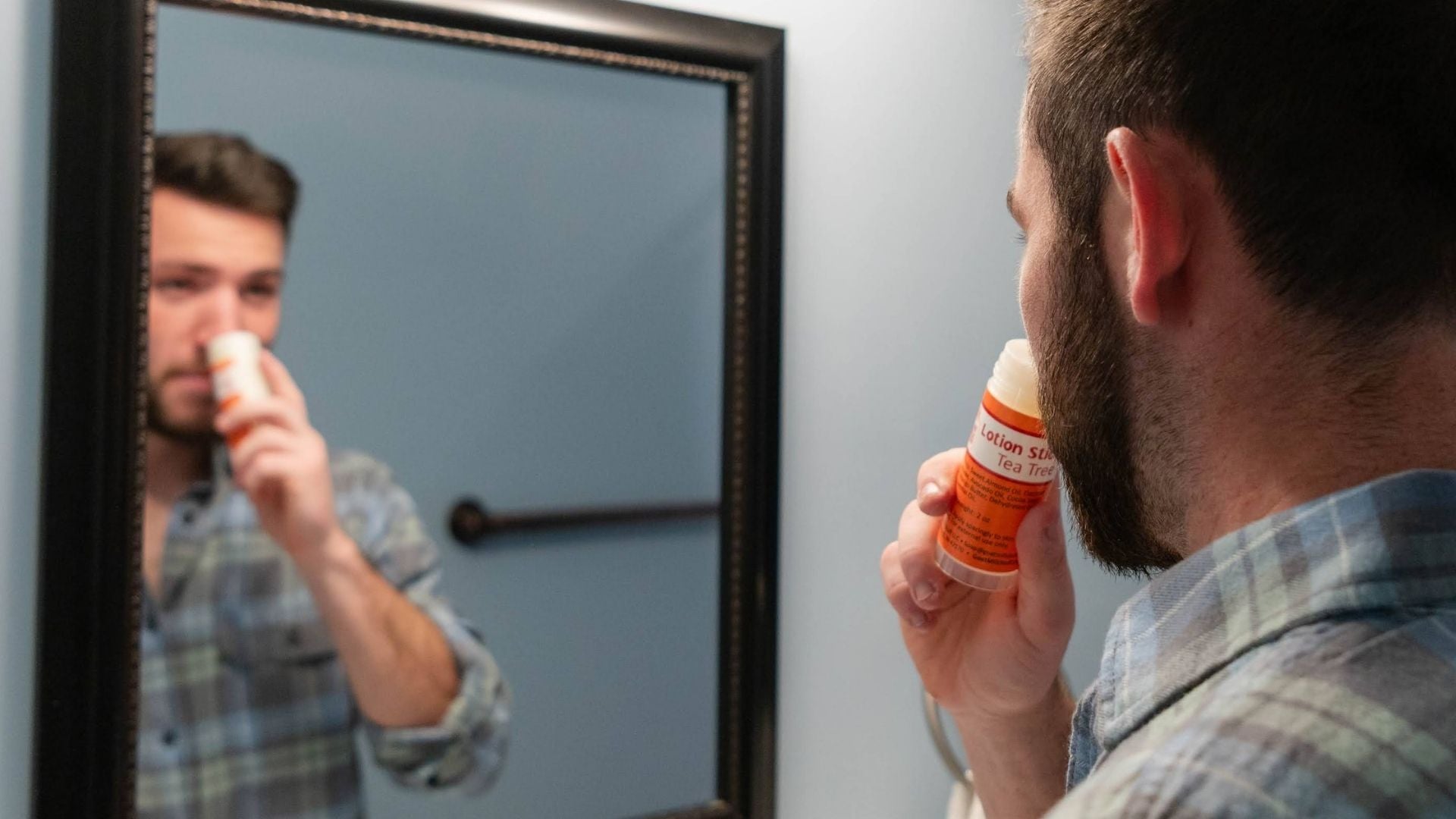
Noticeable Psoriasis Relief in Just One Week
"I bought this Tea Tree lotion for my daughter who has psoriasis on her feet. She noticed an improvement after just one use. She puts it on at night. After one week of use, her feet look and feel so much better. The only problem is that the dog who sleeps under the covers with her tries to lick it off her feet while she sleeps!!"
Lori J. ✅ Verified Buyer
Shop Now

What are the Benefits of Using Goat Milk Stuff?
Relieves Psoriasis Itching and Redness
Tea Tree Soap soothes inflamed skin.Calms Psoriasis Flare-Ups Naturally
Chemical-free formula reduces irritation.Strengthens Psoriasis-Prone Skin Barrier
Goat milk enhances skin protection.The Goat Milk Soap Difference
Say their skin is healthier since switching to Goat Milk Stuff.
Believe that Goat Milk Stuff has significantly improved the quality of their life.
Enjoy softer skin since starting to use Goat Milk Stuff soaps and lotions.
Results from a Goat Milk Stuff survey with over 1000 responses.
Shop all Goat Milk Stuff
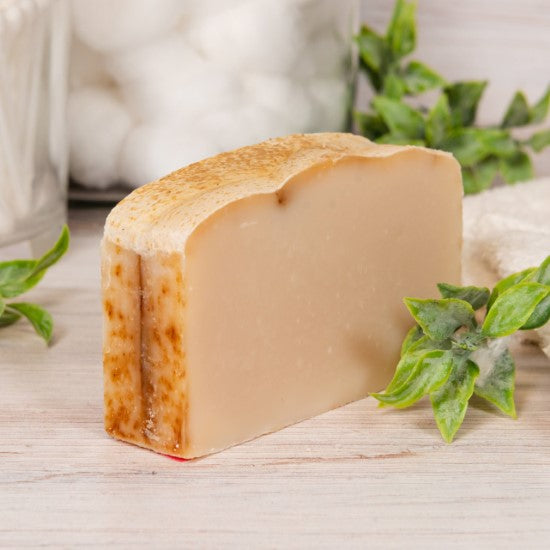
Natural Remedy for Psoriasis
Psoriasis is a chronic skin condition that leaves areas of the skin itchy and scaly. If you or a loved one are struggling with psoriasis, we have good news. Our Goat Milk Stuff has helped thousands of people manage their psoriasis. Below, you will see that we have various options for you to choose from.
The Best Goat Milk Soap For Psoriasis
Each of us is unique, so one soap may work for one person but not another. Below are our top soap products that have helped previous customers manage their psoriasis symptoms.
We recommend starting with our Tea Tree Goat Milk Soap, which adds the benefits of Tea Tree essential oil to simple ingredients to soothe your skin.
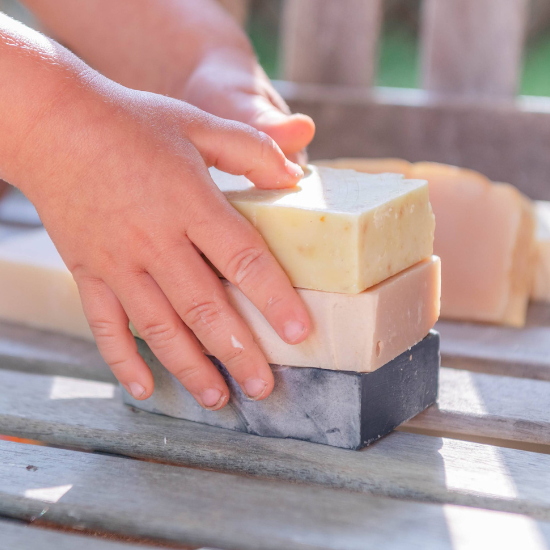
Goat Milk Soaps for Psoriasis Relief
Each goat milk soap in our Psoriasis product line has raw goat milk to help moisturize and offer relief, so what makes each soap different?
- Purity Goat Milk Soap is an unscented soap with simple ingredients.
- Tea Tree Goat Milk Soap is our Purity Goat Milk Soap with Tea Tree essential oil added. It is our first recommendation for psoriasis relief.
- Castile Goat Milk Soap is the gentlest soap we make and contains only organic extra virgin olive oil and raw goat milk. The creamy, lotion-like lather and minimal ingredients make it the goat milk soap we recommend for infants and hyper-sensitive skin.
- Calendula Goat Milk Soap is our Castile soap with calendula-infused olive oil and castor oil added to increase lather.
- Activated Bamboo Charcoal Goat Milk Soap is our Purity Goat Milk Soap with added activated bamboo charcoal.
If you're looking for relief from psoriasis, one of these goat milk soaps may be able to help you the way it has helped others. (Read hundreds of psoriasis testimonials here).

6 Steps to Use Goat Milk Soap for Psoriasis Relief
We recommend these steps to start on your goat milk soap journey:
- Make sure your soap, lotion, shampoo, make-up, and deodorant are as natural and chemical-free as possible. Chemicals can aggravate psoriasis and are hidden in many skincare products.
- Use only the Tea Tree Goat Milk Soap for a week to see if that offers any relief. We have the bar soap for the shower or Tea Tree Goat Milk Bath for enjoying a soak in the tub.
- After a week of exclusively using the Tea Tree Goat Milk Soap, try adding the Tea Tree Solid Goat Milk Lotion to see if it further improves your skin. Some people find it helps, and others don’t, so we recommend the soap first and then the lotion. By not trying them both for the first time in the same week, you can see the impact each one has.
- Change your laundry habits and switch to our Laundry Soap with simple ingredients and no unnecessary chemicals. Clothes, sheets, and towels touch your skin on a regular basis. Chemicals in commercial laundry detergent remain on those items and can irritate your skin.
- If your scalp needs some help, consider trying our Goat Milk Soap Shampoo Bar without chemicals that could aggravate your psoriasis.
- After you've tried the Tea Tree Goat Milk Soap, you can experiment to see if one of our other goat milk soaps for psoriasis (such as Calendula, Castile, Purity, or Charcoal) works any better. Try each one for at least one week so you can give it a fair test. There are smaller sizes available (see the size comparison chart), so you can save money while you figure out which goat milk soap is best for your skin.
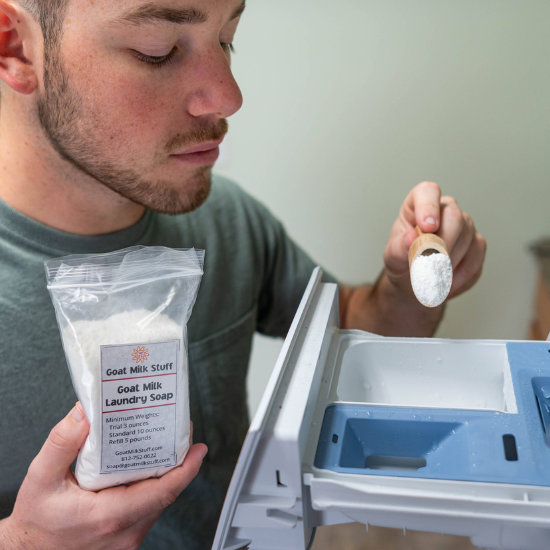
Goat Milk Soap is Good for Psoriasis
Everyone's skin is different, so we can't promise that our Goat Milk Soap will offer you relief from your psoriasis symptoms. But we can share with you hundreds and hundreds of testimonials from people who found relief from psoriasis with our Goat Milk Soaps. Unless you are allergic to one of the ingredients, our soap should not aggravate your psoriasis symptoms.
If our Goat Milk Soaps and Solid Goat Milk Lotions alone don't offer enough relief, you may want to also try our Goat Milk Laundry Soap to get all the chemical detergents out of your sheets, clothes, and towels. These chemicals may further irritate your skin and cause psoriasis flare-ups. We also have a chemical-free Natural Deodorant that is a great solution for irritated armpits.
Some people have found that once they get their psoriasis under control, they are able to switch to a Goat Milk Stuff scented soap. Others continue to use one of the above-mentioned soaps. You need to test them on your skin to see what works best for you.
People Want to Know...

What is Psoriasis?
Psoriasis causes rapid skin growth, forming itchy, scaly patches on skin.
What is Psoriasis?
Psoriasis is a skin disorder that causes the skin to multiply ten times faster than usual, resulting in a rash with scaly, itchy patches. These patches commonly occur on the elbows, knees, scalp, and lower back.

What heals psoriasis naturally?
Aloe vera, turmeric, tea tree oil, and omega-3s naturally soothe psoriasis.
What heals psoriasis naturally?
Psoriasis is often treated with steroid creams and ointments, which help reduce inflammation and itching. However, there are various natural substances that can be used as remedies for psoriasis, such as Aloe vera, Omega-3 fatty acids, Tumeric, Tea tree oil, an oat bath, and much more.

What does psoriasis look like?
Psoriasis causes red, scaly, itchy plaques on scalp, knees, elbows, back.
What does psoriasis look like?
Psoriasis is a chronic skin condition that causes extra cells to build up on the skin's surface to form scales and red patches that can be itchy and painful. The patches, called plaques, tend to develop on the scalp, knees, elbows, and lower back but can form anywhere on the body.

What food should psoriasis patients avoid?
Avoid alcohol, gluten, dairy, nightshades, red meat, sugars for psoriasis.
What food should psoriasis patients avoid?
No specific diet has been proven to cure psoriasis, but some people with the condition may find that certain foods can trigger or worsen their symptoms. So while there isn't a one-size-fits-all diet for people with psoriasis, you may want to steer clear of the following foods:
Alcohol, Processed foods, Gluten, Dairy products, Nightshade vegetables (such as tomatoes, peppers, and eggplant), Red meat, Refined sugars.
However, it's important to note that not all psoriasis patients react the same way to certain foods. Try keeping a food journal to track any changes in symptoms after eating the above-mentioned foods, and try to maintain a healthy diet.

Does psoriasis go away naturally?
Psoriasis, a chronic condition, rarely resolves naturally and may flare up.
Does psoriasis go away naturally?
This chronic skin condition is incurable and very unlikely to go away naturally on its own. Psoriasis is known to go through stages where it is less severe. However, this can be followed by a severe flare-up.

Does goat's milk soap help psoriasis?
Goat’s milk soap may ease psoriasis symptoms with natural, anti-inflammatory ingredients.
Does goat's milk soap help psoriasis?
While goat’s milk soap and other products have not been scientifically proven to treat this skin condition, many people have found our goat milk products helpful in alleviating their symptoms. This is likely due to its natural ingredients, such as fatty acids, as well as its anti-inflammatory properties.

Is psoriasis fungal or bacterial?
Psoriasis is an autoimmune disorder, not fungal or bacterial, with genetic triggers.
Is psoriasis fungal or bacterial?
Psoriasis is neither a fungal nor bacterial infection. Instead, it’s a chronic autoimmune disorder in which the immune system mistakenly attacks healthy skin cells. The exact cause of psoriasis is not fully understood yet, but studies have shown that a combination of genetic and environmental factors is involved.

How quickly can I expect results from using your soap?
Many notice relief within days, with consistent use.
How quickly can I expect results from using your soap?
Psoriasis relief varies, but customer reviews often report reduced itching and scaling within a few days of using our goat milk soaps. For best results, use Tea Tree or Purity Soap exclusively for a week, as recommended. The natural moisturizing and exfoliating properties work gently, offering lasting comfort. Consistent use has transformed skin for countless users.
